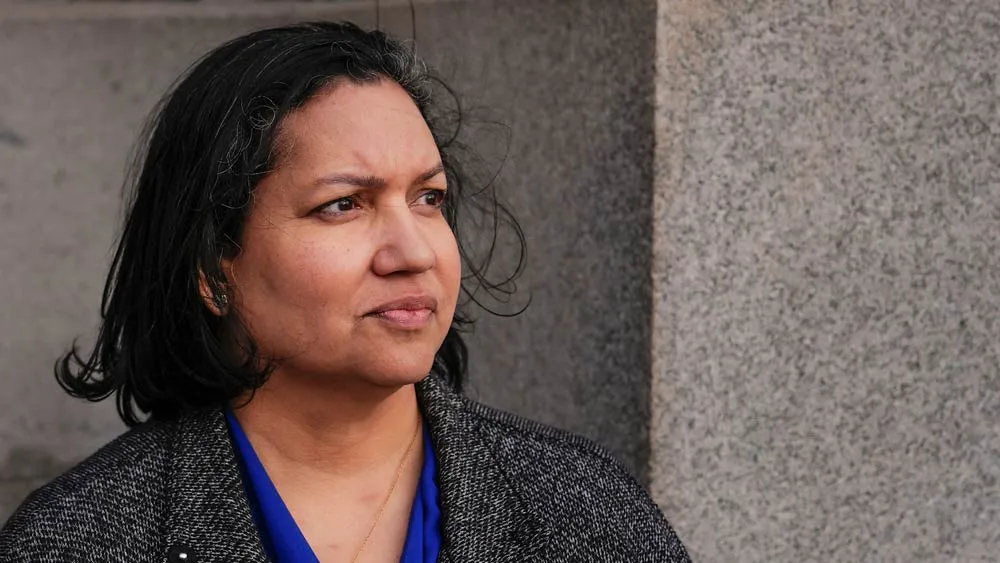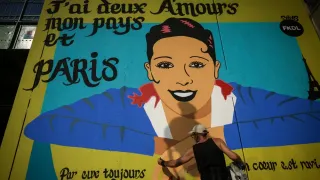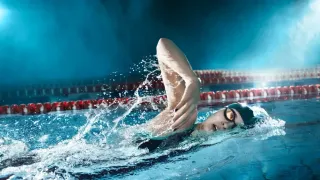March 26, 2021
Impeachment Probe to Examine COVID Tests for Cuomo Relatives
Marina Villeneuve READ TIME: 4 MIN.
The impeachment investigation into New York Gov. Andrew Cuomo is expanding to examine whether the governor unlawfully used his office to provide his family members with special access to scarce coronavirus tests a year ago, a state lawmaker said Thursday.
The office of Attorney General Letitia James, Cuomo's fellow Democrat, issued a statement earlier Thursday urging New York's Joint Commission on Public Ethics to investigate the alleged preferential testing after reports were published in the Times Union of Albany, The New York Times and The Washington Post.
"The recent reports alleging there was preferential treatment given for COVID-19 testing are troubling," the statement read. "While we do not have jurisdiction to investigate this matter, it's imperative that JCOPE look into it immediately."
A spokesperson for the ethics commission, Walt McClure, said the commission could not comment "on anything that is or might be an investigative matter."
The impeachment investigation's primary focus remains on allegations of sexual harassment against Cuomo, as well as reports that his administration intentionally underreported virus deaths at nursing homes and glazed over bridge safety concerns, but the alleged preferential testing will be explored, Assembly Judiciary Committee Chair Chuck Lavine told The Associated Press on Thursday.
Members of Cuomo's family including his brother, CNN journalist Chris Cuomo; his mother; and at least one of his three sisters were tested by top health department officials, some of them several times, according to the Times Union of Albany.
The testing of people closely tied to the governor was carried out by high-ranking state health officials, The New York Times reported. It mostly happened in the early days of the pandemic in March 2020.
The newspapers cited multiple people with direct knowledge of the testing but did not identify them.
Rich Azzopardi, a spokesperson for Cuomo, did not explicitly deny that the administration had extended special treatment to people close to the governor but sought to dispute the notion. The governor's office didn't provide responses to a list of questions from The Associated Press, including whether the governor disputes the reports.
"In the early days of this pandemic, when there was a heavy emphasis on contact tracing, we were absolutely going above and beyond to get people tested," Azzopardi said in a statement, adding that the effort included "in some instances going to people's homes – and door-to door-in places like New Rochelle – to take samples from those believed to have been exposed to COVID in order to identify cases" and to prevent others from developing the disease.
The state Assembly is conducting the investigation into whether there are grounds to impeach the governor. It has hired a Manhattan law firm to lead the probe looking into whether Cuomo used his office to sexually harass or assault female employees, unlawfully withheld the real nursing home death count, covered up structural bolt issues on a state bridge that opened in 2017 to replace the former Tappan Zee bridge or provided preferential testing.
The state attorney general is also investigating the allegations of sexual harassment, which Cuomo has denied, and a federal inquiry into the state's reporting of nursing home resident deaths is underway.
Chris Cuomo was diagnosed with COVID-19 in late March of 2020. The CNN anchor was swabbed by a top state health department doctor who visited his Hamptons home to collect samples from him and his family, people with knowledge of the matter told The Washington Post, which did not identify them.
In a statement late Wednesday, CNN spokesperson Matt Dornic said: "We generally do not get involved in the medical decisions of our employees. However, it is not surprising that in the earliest days of a once-in-a-century global pandemic, when Chris was showing symptoms and was concerned about possible spread, he turned to anyone he could for advice and assistance, as any human being would."
The same doctor who tested Chris Cuomo, Eleanor Adams, now a top adviser to the state health commissioner, also was enlisted to test other Cuomo family members, two people familiar with the program told The Washington Post.
The Washington Post reported that "dozens of VIPs, some living in penthouses in Manhattan," got access to rushed tests. Cuomo's office didn't directly respond to that report.
The coronavirus test specimens were then rushed by state police escorts to the Wadsworth Center, a state public health lab in Albany, where they were processed immediately, the people said.
State police spokesperson Beau Duffy said that there was "nothing extraordinary" about the agency's involvement and said it helped transfer all samples to state labs early on in the pandemic last year. Troopers picked up samples from doctor's offices, state testing sites, nursing homes and other locations at the state health agency's direction.
"During the first weeks of the pandemic, troopers transported thousands of samples from around the state to Wadsworth for testing," Duffy said.
In March 2020, Cuomo cited his own experience with his family in daily news conferences in which he at times discouraged the public from getting tested for COVID-19 unless they had traveled to a hot spot. In one briefing from March 18 that year, he described discouraging his sister from getting a test for her daughter because it didn't seem necessary.
Cuomo often suggested the primary purpose of limited COVID-19 tests was to isolate people who are likely exposed and sick.
"The truth is we don't have the testing capacity," Cuomo told reporters March 9, 2020. "We have the protocol on the testing because we can't test people on that kind of whim."
___
Associated Press writer Michael R. Sisak in New York contributed to this report.






